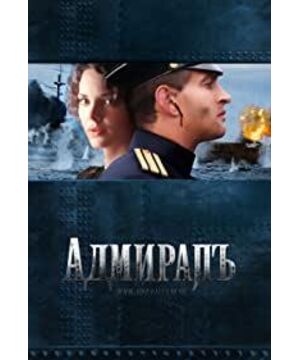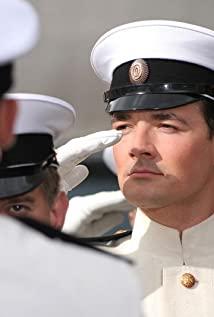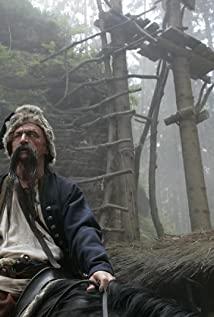There are two obvious narrative clues throughout the film. One is the emotional clues of Anna and Kolchak's encounter, knowing, falling in love, together, and separation; the other is Kolchak as a soldier. The glorious experience and the change of identity were finally defeated and killed. The film’s opening and closing narration is like "Titanic", a memory drawn by an old lady. At the end of the film, the broken wine glass dropped from the tray forms the first and last echoes, which constitutes the interweaving of reality and memory. The director’s flashback narrative technique The application seems to be a reconstruction of the beautiful fairy tales in the past. The dance party where Anna and Kolchak met was reproduced. All people were indulged in dance, music and wine, and life at that time could be described as singing and dancing.
Every movie text, every story contains certain prerequisites that the author believes, or the author has set as conventional and self-explanatory. Certain factors that must exist for the narrative in the text have been omitted. The reason seems to be that they are already well-known, so there is no need to say more. We will see that this is often not the case. In other words, it is not only paying attention to the story told by the text and the way the story is told, but also paying attention to the factors it "not" tells-paying attention to those meaningful blanks is paying attention to the "structural cracks and blanks" in a text. . Just watching this movie really makes it easy for one to have an imagination of Russia before the October Revolution, the noble life, the gorgeous dance party, and those soldiers who are firm, brave, and composed. But the historical knowledge in middle school alone is enough to discover that the director has overlooked the historical background before the October Revolution in Russia. The description of the Soviet Red Army in the film is undoubtedly a negative slander enough to surprise Chinese audiences, but let us rest assured that the Red Army there is the Russian Red Army and Communist bandits rather than China.
Michel Foucault has a famous point: what matters is the age of myths, not the age of myths. In other words, the most important reference factor is not the time when the story in the film occurred, but the time when the film was produced, distributed, and shown. The producers of the film choose a certain historical era as the one to be told, and place their character stories in certain historical scenes. The important basis is undoubtedly the social reality they are in. This also confirms an important point of contemporary historiography when interpreting historical texts: all history is contemporary history. Needless to say, it is not the Russian October Revolution, but the social reality of today's Russia, that is the correct entry point for the film. Today's Russia has re-emerged after being squeezed by the United States and other strategies, and after suffering loss and humiliation, it has intentionally or unconsciously displayed its national ambition. Russia has risen under conditions of being squeezed by the United States and other Western countries, unable to bear and retreat, so it is full of anger. Russia has risen after eight consecutive years of economic growth exceeding 6%, and its rich oil and gas resources have become a powerful geopolitical weapon, so it feels very confident. Russia has risen in the quagmire of Iraq and Iran’s nuclear stalemate, serious domestic political differences, slowing economic growth, and increasingly obvious signs of a decline from the peak of hegemony. Therefore, it has become more courageous. Therefore, today, when the Soviet Union has long ceased to exist, the director has a greater political space to think about that period of history, and the portrayal of the Soviet Red Army is similar to robbers to demonstrate Kolchak's high revival of Russian patriotism. But such extremes can easily lead to a kind of superficiality. There are comments that the director responded to the other extreme of the Soviet Union's centralized rule after Stalin in such an extreme way. In the film, the tricolor flag of the Kolchak Provisional Government fluttered over the Kremlin several decades later. Is this a satire of history or an answer? The result of a war is always that the winner is the king and the loser is the conquer. As the ideological field, film art is only a tool of the right to speak.
It is said that Kolchak himself is a very charismatic and legendary military officer. He is portrayed in the film as an excellent general with superhuman calmness and unswerving loyalty to the motherland. The infinite love of life is a touching patriot and a true temperament man who dares to love and hate. Against the background of such a resolute soldier and war, a not-so-satisfying love is used to form the whole main line. Perhaps the director has made the characters more plump and contrasted his true temperament and emotional world from other aspects.
Some commentators commented on Kolchak: He is not a historical sinner, but a soldier, a soldier who has fallen behind the trend of society and failed to maintain the old order. Everything has become history after all, and every historical figure cannot escape the interpretation under the ideological framework. The winner is the king and the loser. If it is a pastime, you don't have to take it too seriously; if it is a political fable, the benevolent should see his benevolence.
Attachment:
Kolchak (1874-1920): Russian admiral, one of the leaders of the White Guard during the Soviet-Russian civil war and foreign armed intervention. Born in St. Petersburg. Graduated from the Naval Armament School in 1894. Participated in the Russo-Japanese War. In World War I, he served as the Minister of Operations of the Baltic Fleet, the captain of the Mine Corps, and the commander of the Black Sea Fleet. After the February Revolution in 1917, he resigned and went into exile in Britain and the United States. He returned to Omsk in October 1918. In November, he became the Minister of the Army and Navy of the "Siberian Government" against the Soviets. With the support of foreign interferers, he launched a coup, overthrew the Socialist Revolutionary Party-Menshevik government, established a military dictatorship, and proclaimed himself "Russia". Supreme ruling" and commander-in-chief of the army and navy. In the spring of 1919, the White Guards led a rampant attack on the Soviet Republic and once occupied Siberia, the Urals and the Volga River area. At the end of the same year, he was defeated by the Red Army under the command of Mv. Frunze, and was arrested by the Czech Army after he fled to Irkutsk. In January of the following year, he was extradited to the Social Revolutionary Party-the Menshevik "political center", and then transferred to the Bolshevik Irkutsk Revolutionary Committee at the request of the insurgent workers, and was executed in February. In 2004, the Russian Constitutional Court transferred the Kolchak vindication case to the military court for another hearing. Although opposed by former Soviet veterans and left-wing politicians, Kolchak monuments were established in St. Petersburg and Irkutsk, and there is even an island named after him. Wikipedia's evaluation of him is: "political innocent victim and idealistic patriot".
View more about Admiral reviews











